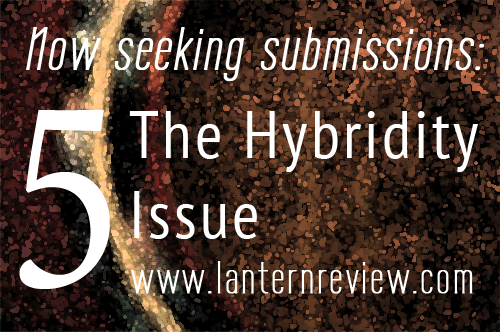
This month, in preparation for Issue 5: “The Hybridity Issue,” we’ve dedicated our Friday Prompts to exploring how collage, mixing and hybridization can be meaningful (and generative) practices for poets interested in exploring the narratives and critical concerns of the Asian American community.. Thus far, we’ve looked at hybrid form and mixed media; today we’ll be talking about hybridized language.
In contemporary poetry, quirky mixtures of the high and low, archaic and contemporary, and the scientific and colloquial are so common that we’re no longer surprised when a writer quotes a religious text–the Bible, for instance–and then, without skipping a beat, relays the one-liner they heard while waiting for an oil change. This kind of modulation, frequently used for ironic or comedic effect, can also be deployed for more serious purposes–and, I suspect, is a mode we’ve come to embrace because miscegenated language reflects our cultural moment in a way that elegant, seamlessly constructed prose does not. Just Google “best place to get tacos” or “Jeremy Lin is awesome” and see what comes up.
For many Asian American poets, however, linguistic hybridity is more than just an intellectual exercise. Many of us are multilingual, or come from families whose histories are told in multiple tongues (two, at least, and sometimes more–I’m thinking here of Korean-Brazilian writer Larissa Min, who writes in the linguistic spaces between Portuguese, English and Korean). And even if our tongues aren’t split by language, the idea of linguistic difference–our grandparents’ English versus our own, our professors’ English versus our aunties’–is important for more than theoretical reasons. It’s freighted with cultural, and thus, emotional weight. Our split tongues matter–even if, as is the case for me, a fourth-generation Japanese American, our “mother tongue” is little more than a myth, a conspicuous silence that, in its marked absence, tells us something about our history. Continue reading “Friday Prompt: Working With Hybrid Language”